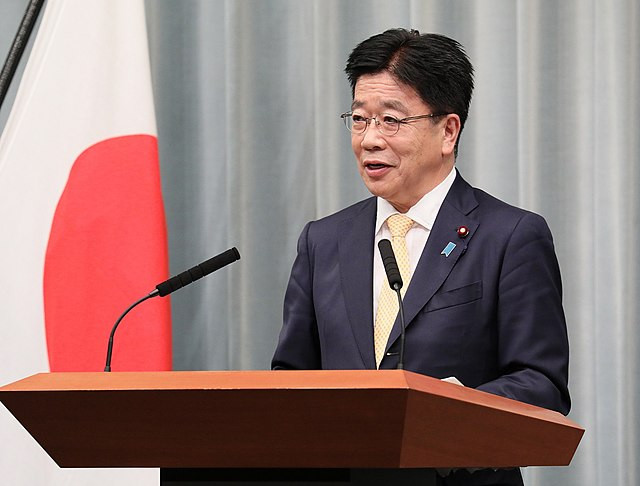Japan's $1 trillion-plus in U.S. Treasury holdings could be used as a tool in trade negotiations with Washington, Finance Minister Katsunobu Kato said Friday, signaling a shift in Tokyo's position amid intensifying tariff talks and financial market volatility.
The statement comes as Japan's top trade envoy, Ryosei Akazawa, met for a second round of bilateral discussions in Washington with U.S. Treasury Secretary Scott Bessent. Kato, speaking on television, said the Treasuries-which make Japan the largest foreign holder of U.S. debt-are primarily held for liquidity to support potential yen interventions. But he added, "We obviously need to put all cards on the table in negotiations. It could be among such cards."
"Whether we actually use that card, however, is a different question," Kato said.
The comment represents a notable departure from Kato's stance last month, when he ruled out the use of Treasury holdings as leverage. While he declined to confirm whether the subject was raised in last week's meeting with Bessent, he noted that April's steep Treasury sell-off likely factored into the evolving U.S. approach. "It won't be good for the economy and financial system for markets to be too unstable," he said.
President Donald Trump's decision to pause his "reciprocal" tariff program for 90 days followed the most turbulent stretch in U.S. bond and equity markets since the 2020 pandemic panic. The market volatility-triggered in part by new 24% tariffs on Japanese exports-contributed to the administration's reassessment, according to sources close to the White House.
Japan remains under a 10% universal tariff and a 25% duty on automobile exports, key pillars of its manufacturing economy. While the new levies have been delayed until early July, pressure continues to mount on Tokyo to offer concessions. Foreign ownership of U.S. Treasuries rose 3.4% in February, with Japan and China leading the buildup, Treasury Department data shows.
Kato also addressed ongoing U.S. accusations that Japan manipulates currency markets. "Japan doesn't manipulate currencies," he said. "We'll need to explain this point thoroughly to the U.S."
Tokyo has intervened in currency markets to stabilize the yen during periods of excessive volatility, a practice officials say is consistent with economic fundamentals. Last year, the Japanese government moved to strengthen the yen as its decline raised the cost of imports and hurt domestic consumption.






